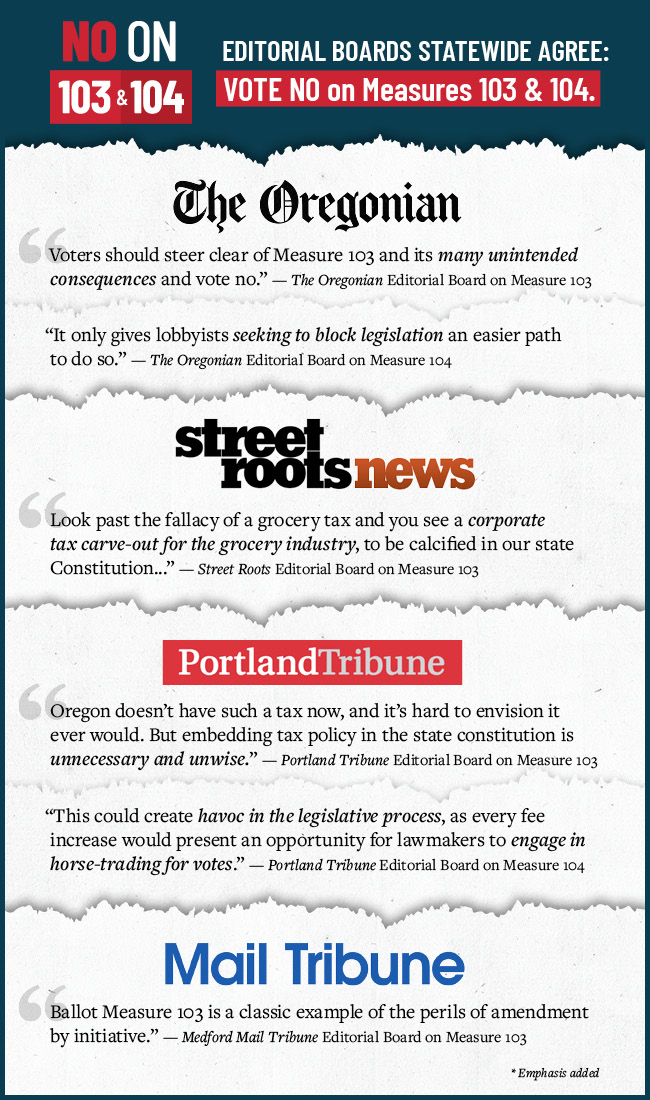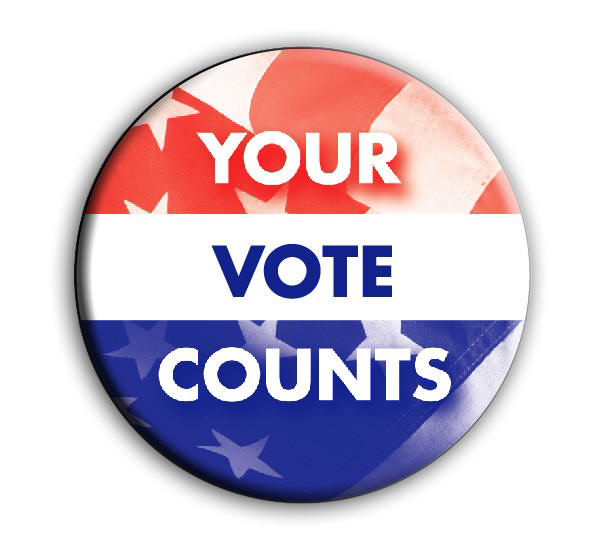It takes a special kind of creativity to frame bad things in an appealing way, but that’s what has happened with most of the ballot measures this election.
At first glance, measures 103 and 104 are very appealing, protecting groceries from taxation and making sure the legislature does its job, forcing both parties to work across the aisle before fees can be raised. The arguments made by the proponents are quite compelling. But when we dig a little deeper, and research what is at stake, we find that the initial wording is just cheap lipstick on the pig.
These two measures are simply cleverly worded amendments to the Oregon Constitution designed to guarantee larger profits for corporations while putting the economic viability of our state, counties, and cities at risk. If passed, it would be nearly impossible to close tax loopholes, especially if those benefiting from the loopholes can continue bankrolling reelection campaigns. Three large grocery retailers have already invested $2 million of their “narrow profit margins” to try and convince us that “groceries” include not only food, but also soda on store shelves, in their hot delis, in restaurants, and even when the use of their trucks to transport e-cigarettes to the store.

The end result of these measures won’t be seen by consumers, since we don’t pay sales tax in Oregon, and no politician in their right mind would propose a sales tax on food anyway. The end result will be a reduction in corporate tax revenue for the state. Since the state shares its revenue with cities, that means each of our towns will see a reduction in revenue from the state. The end result may be a reduction in services that our local governments can afford to provide to us.
When you consider which oval to fill in on your ballot, take the time to read not only the title, but also read up on the issue. When you consider the implications these nice sounding measures could have, you will come to the conclusion that you should vote NO on M103 and M104.
David McCall, Bay City


